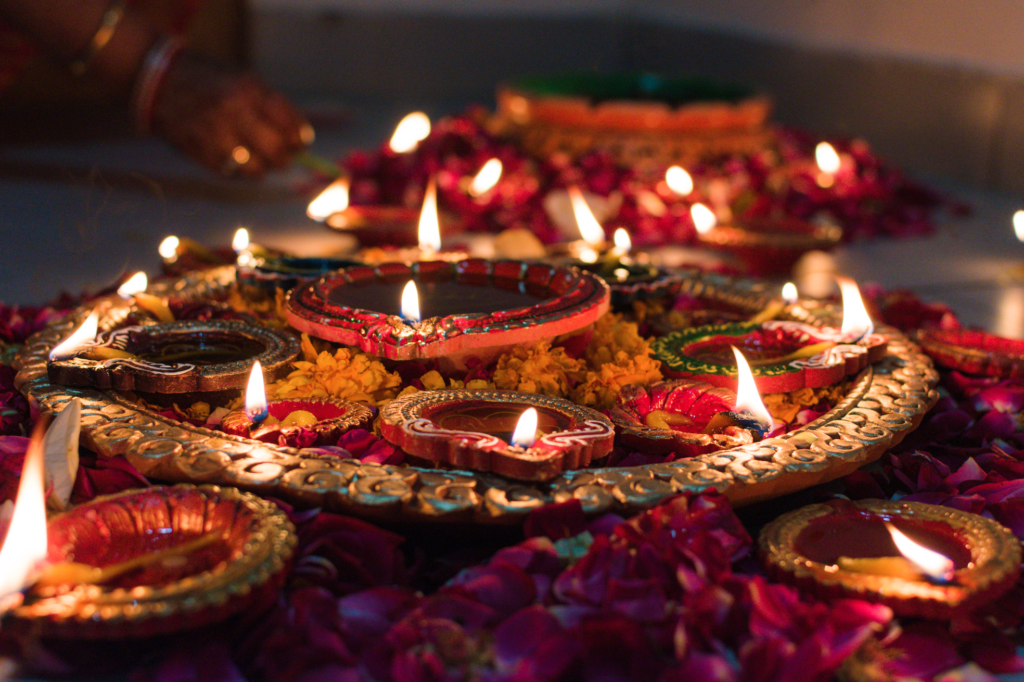the meaning of diwali
As a South Asian, celebrating Diwali was a very important part of our family culture and traditions. I was used to lighting diyas, praying, going to the temple, and then lighting sparklers in our backyard at night. My mother would prepare all of my favorite prasad, and draw beautiful rangoli. We would also wash our hair and get dressed up in fancy South Asian dresses. It was a time to celebrate and welcome in the new.
There are many interpretations of what Diwali is. It’s special to me because of the story I was told as a little kid in my sloka (prayer) class. In the Ramayana, Sita gets taken by a demon, Ravana. After Sita and Ram reunite, they are exiled and have two children, Lav and Kusha. There are two stories that I’ve heard from here. One is when Sita is reuniting with Ram, citizens of Ayodhya lit candles to guide their way. The other one is when Ram and Sita come back from exile, the citizens of Ayodhya light candles to also guide their way.
Some say Diwali is to celebrate the Goddess Lakshmi, or Kali. As Diwali has become more mainstream, more people learn about what it is, but not what it means. Essentially, regardless of what stories we tell, the holiday is to celebrate the victory of light over darkness. Good over evil. Hindus celebrate Diwali to celebrate not just a candle light, but the light of God, a light that never burns out.
Today, I’m not very religious. However, Diwali holds a special place in my heart. In college each year, my friends and I go out to Diwali parties and watch performances, including the non-South Asian ones. I’ve had the opportunity to spread this tradition to all sorts of people. If you are not South Asian, one of the most important things to do is not just wish South Asians on this auspicious day, but take the time to be an ally to the community by learning about the deeper meaning of it.
Diwali invites us to embark on a journey of spiritual renewal. Beyond the rituals, it’s an opportunity to connect with a higher consciousness. The act of cleaning our homes mirrors the cleansing of our minds, making space for positivity and serenity. Lighting a diya becomes a meditative practice, a ritual that transcends the physical act and touches the soul. Diwali provides a pause and a moment to breathe. A second to be grateful for the light around and within us. As you continue on your spiritual journey learning more about this incredible holiday, here are a few facts you should know about Diwali!
- Diwali is celebrated over five days with all sorts of different traditions. These days actually change every year.
- The holiday is not just for Hindus- Sikhs and Jains also celebrate Diwali.
- Diwali means “row of lights” in Sanskrit.
- Diwali is an observed holiday in only 11 countries, and has been celebrated for over 2,500 years.
- A rangoli, a decoration made with colored rice and flower petals, is often drawn on the holiday or before it outside of homes.
- Deep cleaning and rest is common for this holiday, and card games and gambling are often played.


